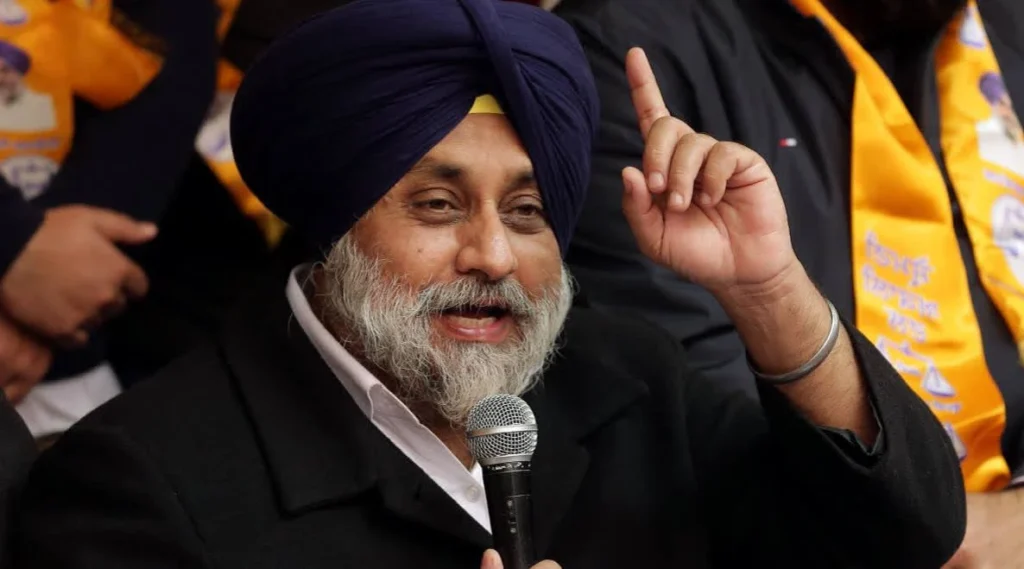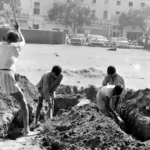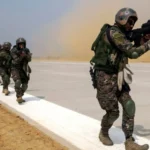A Morning That Broke Hearts
Picture this: it’s a crisp May morning in Poonch, Jammu and Kashmir, and Amreek Singh is unlocking his grocery shop, humming a hymn he sang at the gurdwara the night before. Nearby, his friend Ranjit Singh sets up his store, ready for the day’s bustle. Across town, Ruby Kaur kisses her toddler goodbye, and ex-soldier Amarjeet Singh heads to the gurdwara to play his tabla. Then, boom—Pakistan’s artillery shells rip through the air, and in seconds, these four lives are gone. Welcome to May 7, 2025, when Poonch’s Sikh community was gut-punched by a tragedy that feels ripped from a war movie. Grab a coffee, friend, because this story’s heavy, and it’s real.
The shelling, a retaliation to India’s Operation Sindoor targeting terror camps across the Line of Control (LoC), was brutal—worse than the 1999 Kargil War, locals say. It didn’t just claim lives; it hit the heart of Poonch’s Sikh community, killing Amreek Singh (39), a raagi who filled gurdwaras with soulful hymns; Ranjit Singh (48), a quiet shopkeeper; Ruby Kaur (32), a homemaker with three kids; and Amarjeet Singh (50), a former soldier turned devout Granthi. A nearby gurdwara, Sri Guru Singh Sabha, took a hit too, its wall scarred by shrapnel. This wasn’t just an attack—it was a wound to a community’s soul.
Lives Cut Short, Dreams Destroyed
Let’s talk about the people, because they’re not just names. Amreek was the guy who’d sing kirtan so beautifully you’d feel closer to the divine. He ran a small shop to feed his two daughters and son, his whole world. Ranjit, unmarried and hardworking, was the neighbor everyone liked—always there with a smile. Ruby, in Mankote, was raising three kids, her youngest barely 18 months old. And Amarjeet? A retired soldier who swapped his rifle for a tabla, playing at the gurdwara with a devotion that inspired everyone. They were at Syndicate Chowk or in their homes when shells fell, stealing their futures. Amreek and Ranjit died together, Ruby in her village, Amarjeet elsewhere—all cremated by Wednesday, except Amarjeet, whose farewell came Thursday.
The gurdwara’s damage—a cracked wall, shattered glass—was minor compared to the human loss, but it stung. “The shock is massive,” says Narinder Singh, head of Poonch’s Gurdwara Committee. “We thought we could handle shelling after Kargil. We were wrong.” Poonch’s 25,000–30,000 Sikhs are reeling, their sense of safety shattered like the gurdwara’s windows. Families are fleeing to Jammu, haunted by the fear of more violence.
A Community’s Cry for Peace
The Sikh community’s grief is raw, and their leaders are speaking out. Giani Kuldeep Singh Gargaj, Acting Jathedar of Sri Akal Takht Sahib, called the attack “a blow to humanity.” “Amreek served through kirtan, Amarjeet defended our borders, Ranjit was a tradesman. Their lives shouldn’t have ended like this,” he said, urging India and Pakistan to choose diplomacy over destruction. “War devours the innocent. Peace is strength.” Punjab Chief Minister Bhagwant Mann echoed the outrage, calling the attack on a sacred gurdwara “condemnable” and praying for the families’ strength.
This wasn’t just a random strike. It followed India’s Operation Sindoor, a response to the April 22 Pahalgam attack that killed 26. Pakistan’s shelling hit civilian areas—homes, a mosque, a Geeta Bhawan—killing at least 12, including four children, and injuring 57. Poonch, a border town, bore the brunt, its streets now quiet as residents huddle in bunkers or flee.
Why You Should Care
“Another border clash? Yawn,” you might think. But hold up—this isn’t just geopolitics. These were people living their lives, like you and me, until war crashed their party. Amreek’s kids lost their dad; Ruby’s toddler won’t remember her mom’s hug. This is what war does—it rips families apart, Sikh or not, and leaves communities like Poonch’s 25,000 Sikhs scared to step outside. It’s a wake-up call: conflicts like India-Pakistan don’t just stay on the news. They destroy real people, real places, real hopes.
And it’s personal. The gurdwara, a place of peace, was hit. If a house of worship isn’t safe, what is? Plus, with families fleeing and tensions spiking, this could spiral. Your morning coffee could come with headlines of worse if peace doesn’t win.
The Internet’s Mourning
Online, the Sikh community’s grief is loud. Posts call for justice, with hashtags like #PoonchAttack trending. Some share Amreek’s kirtan videos, others Ruby’s smiling photos. “This is our home, and it’s bleeding,” one user wrote. There’s anger too: “Pakistan targets civilians? Cowards!” But many echo Gargaj’s call for peace, urging prayers for the departed. You gonna add your voice or just keep scrolling?
Final Word: Will Peace Prevail?
Poonch’s tragedy isn’t just a headline—it’s a scream for sanity. Amreek, Ranjit, Ruby, and Amarjeet weren’t soldiers; they were singers, parents, dreamers. Their deaths, and the gurdwara’s scars, are a stark reminder: war doesn’t care who you are. As Poonch mourns and families flee, the question hangs heavy: will India and Pakistan keep firing, or will they listen to voices like Gargaj’s? Your move, world. Don’t just read this and shrug—talk about it, share it, pray for it. Or are you too busy liking cat videos?



